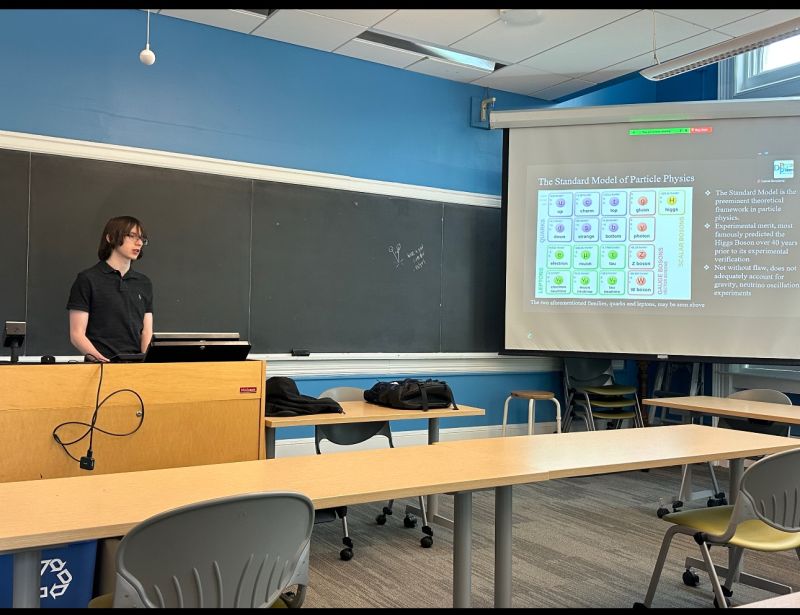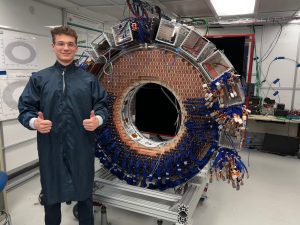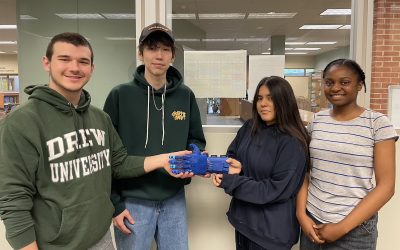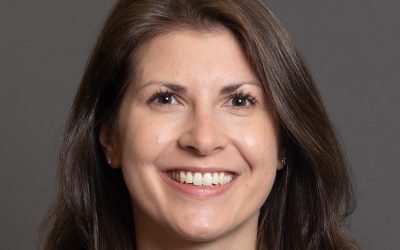Physics provides much of the conceptual foundation and instrumentation fundamental to astronomy, engineering and other sciences. It has inspired the creative work of mathematicians, philosophers and social scientists. Drew’s program is designed to provide rigorous preparation for those planning careers in the field, while also serving the needs of liberal arts students interested in a variety of other careers.

DUNE Experiment
Announcement: Drew Particle Physics Joins the DUNE Collaboration
We are pleased to announce that the Drew Particle Physics Group is now an official institutional member of the Deep Underground Neutrino Experiment (DUNE), one of the world’s most ambitious and transformative scientific endeavors. This marks an important milestone for our growing research program and opens new opportunities for our students and faculty to contribute directly to cutting-edge discoveries in neutrino physics and fundamental science.
About DUNE
DUNE brings together scientists, engineers, students, and institutions from across the globe to advance our understanding of neutrinos—mysterious, abundant particles that may hold the key to answering some of the most profound questions in science. For more deatails about the experiment, check the DUNE Experiment.
For more information sbout the Drew Particle Physics Group nd how to join, please contact Prof. Kamal Benslama at kbenslama(at)drew.edu

Brendan Mullany
Congratulations to Brendan Mullany who defended his honors thesis last spring. Brendan is now a graduate student working on the DUNE experiment.
Drew University is a QuarkNet Center. For more information, please check HERE
Physics Student John Mclaughlin had the opportunity to spend two weeks at Fermilab to get familiar with the electromagnetic calorimeter used by the Mu2e experiment.

The Physics Major
The physics curriculum at Drew is designed for flexibility. The department encourages all students to choose courses that suit their interests and goals. Students also freely elect supplemental experiences beyond the classroom, such as paid internships, off- or on-campus research, and independent study projects. Many Drew physics majors choose to continue their studies by pursuing a Ph.D. in physics. Other physics majors choose postgraduate training in engineering, law, medicine, or education, or choose to directly enter the workforce after college. The logical thinking and problem-solving skills learned in the study of physics serve our students well in a wide range of post-college endeavors.
The Engineering Physics Major
Drew’s engineering physics major is designed to provide an ideal pathway for students interested in a career in engineering. The core curriculum is built around the physics, mathematics, chemistry and computer science courses that form the foundational knowledge of engineering and introduce the engineering/design mindset required to solve today’s complex problems. Students pursuing engineering physics at Drew will be broadly trained with both strong technical skills and other critical transferable skills for effective communication, collaboration, and problem-solving. Some graduates continue their engineering studies through combined degree programs with Columbia and Washington University or through other graduate programs. Others pursue careers in fields ranging from acoustical engineering to computer aided design or solid state device fabrication.


